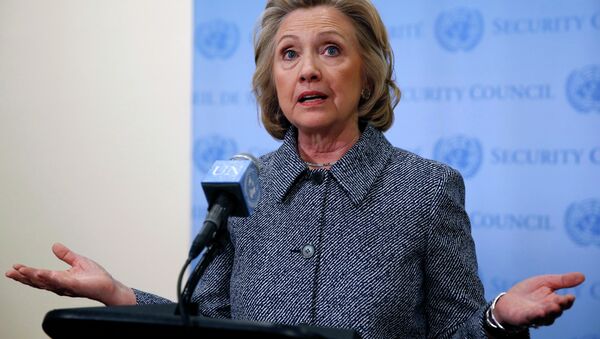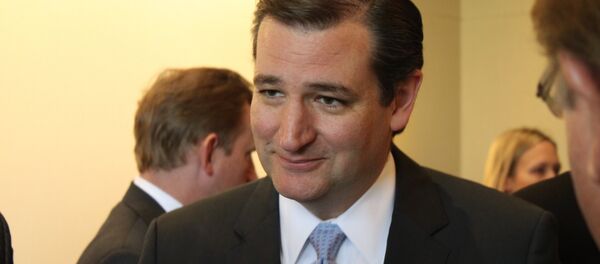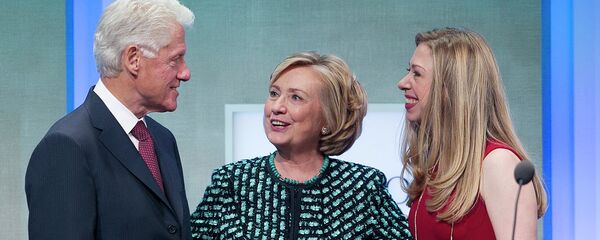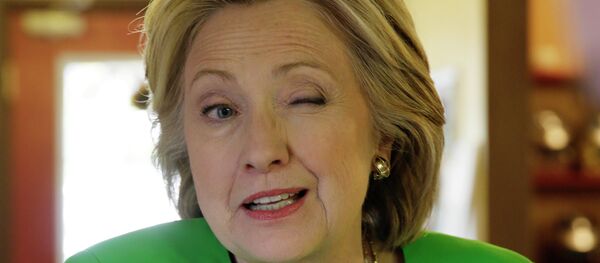MOSCOW (Sputnik) — The acting chief of the Clinton Foundation has admitted that some errors were made on its tax forms, amid media reports of the organization having provided inaccurate information on its contributors, such as Uranium One company executives.
"While some have suggested that this indicates a failure to accurately report our total revenue, that is not the case. Our total revenue was accurately reported on each year's form – our error was that government grants were mistakenly combined with other donations," Maura Pally, Acting CEO and Senior Vice President of The Clinton Foundation, said in a Sunday statement.
Since former US Secretary of State Hillary Clinton decided to run for president in the United States, the foundation, established by Hillary and her husband, former US President Bill Clinton, has vowed to disclose all of its donors on a quarterly basis.
The acting CEO added, however, that the foundation will "likely" refile forms for some years because of the errors that appeared on its 990 tax forms that need to be filed by non-profit organizations annually with the US Internal Revenue Service to maintain a tax-exempt status.
"So yes, we made mistakes, as many organizations of our size do, but we are acting quickly to remedy them, and have taken steps to ensure they don't happen in the future," Pally said in the Sunday statement.
Established in 2001, The Clinton Foundation has been scrutinized over continuing reports claiming that it accepted millions of dollars in foreign donations while Hillary Clinton served as US Secretary of State, potentially leading to conflict of interest.
On Thursday, the New York Times reported that Canadian mining financier Frank Giustra, who founded Uranium One in 2007 by signing a merger deal between his UrAsia Energy Ltd. company and a South African firm (called Uranium One) donated $31 million to Bill Clinton for helping him win a competition for uranium ore mining in Kazakhstan after the two visited the country in 2005.
Commenting on the Giustra-related accusations, Pally said on Sunday that even though like "every contributor to the Foundation" the Clinton Giustra Enterprise Partnership (CGEP) is publicly listed as one of its donors, it is "a distinct Canadian organization, separate from the Clinton Foundation."
According to the New York Times, before Hillary Clinton could take the post of US Secretary of State, the White House asked the Clinton Foundation to publicly disclose all of its donors. The disclosures showed that the only Uranium One donation made to the Clinton Foundation was that of Uranium One chairman Ian Telfer, a Canadian who contributed about $250,000 in 2007.
But a review of tax records in Canada shows that he has donated millions of dollars more, along with other contributors with ties to Uranium One or UrAsia, the New York Times reported on Thursday.
In 2013, a deal was completed on the acquisition of 51 percent of Uranium One by the Russian atomic energy agency Rosatom.
According to Pally, all finances received by the Clinton Giustra Enterprise Partnership do not go to The Clinton Foundation's general fund.
"CGEP (Canada) provides funding on a project-by-project basis and this money goes exclusively to CGEP projects, not to the Foundation's general operating fund," the acting CEO of The Clinton Foundation stressed on Sunday.
Earlier this month, the foundation said that it would continue to receive funds from six foreign states — Australia, Canada, Germany, the Netherlands, Norway and the United Kingdom — while limiting donations from other countries.
The decision comes after Hillary Clinton announced on April 12, 2015 that she would seek the Democratic presidential nomination in the United States, stepping down from The Clinton Foundation's board.





